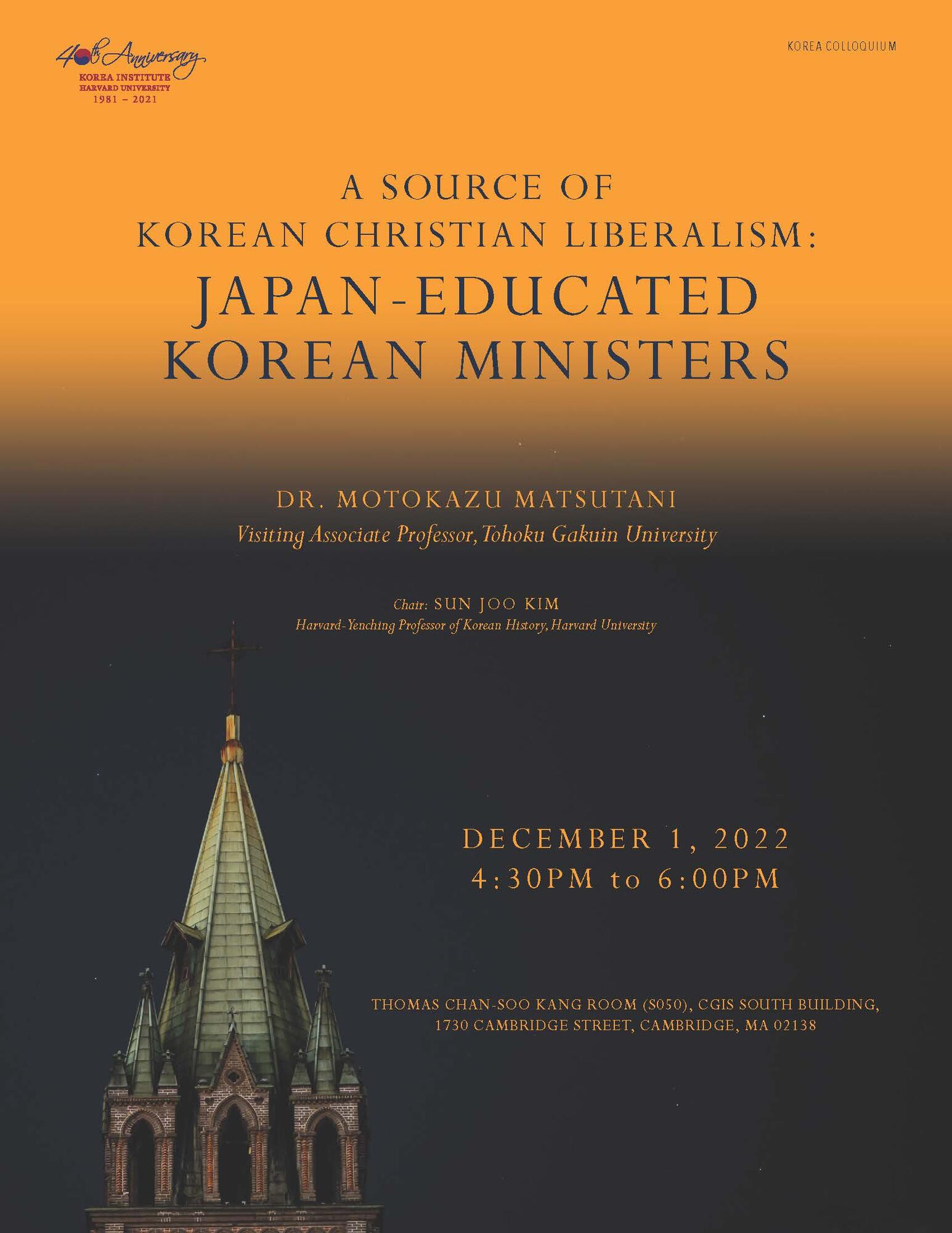Date:
Location:
Korea Colloquium
Co-sponsored by the Edwin O. Reischauer Institute of Japanese Studies

Motokazu Matsutani
Visiting Associate Professor from Tohoku Gakuin University
Dr. Motokazu Matsutani is a Visiting Associate Professor from Tohoku Gakuin University. Dr. Matsutani’s visit to UBC is from April 1, 2022 to March 31, 2023 with supervisor Hyung Gu Lynn.
His research interest is modern history of Korea and Japan with a special focus on: the development of the Christian Church as a socio-political force and the changing dynamics of church and state; complex interrelationships between western missionaries and local Christian intellectuals; the significance of the Japanese Church and its Christian intellectuals in Japanese Empire.
Chaired by Sun Joo Kim, Harvard-Yenching Professor of Korean History, Harvard University
Abstract:
In colonial Korea during the 1920s and 1930s, an increasing number of Korean Christians went to Japan to receive theological education to prepare for the ministry.The most popular destinations were the theological departments of Christian colleges in Japan such as Aoyama Gakuin in Tokyo and Kwansei Gakuin in Kobe. There, they worked on modern theology and other scholarship with Japanese and western missionary teachers and built up a transnational Christian human network. Returning home, they occupied the pulpit and teaching posts in Korean churches and schools and formed an intellectual circle of Japan-educated Christian elites.
Considering the numerical superiority of Korean Christians over Japanese Christians and the rise of anti-Japanese sentiment among Korean Christians in the aftermath of the Japanese brutal suppression of Korean churches and Christians in the March First Movement, the fact that there was a growing number of Korea Christians who pursued Christian studies in Japan may well confound our common assumptions about this period.
My talk will explicate the social and religious conditions in colonial Korea that prompted these students to seek Japanese schools and reveal that their opportunities for Christian higher education were limited and that they were even discouraged by conservative foreign missionaries. Next, it will elaborate on their study experiences in Japan, and explain how they impacted their personal lives and identities and also their perspectives on Christianity. Lastly, I will trace their post-graduate careers in Korea and show how many of them became leading intellectuals and promoted a more liberal understanding of Christianity and Christian cultures to Korea, venturing to reform the predominantly conservative Christian tradition in Korea. Based on these findings, I will argue that Korean graduates from Japanese Christian schools were the major driving force of Christian liberalism in Korea and suggest that their influence continued even in post-liberation South Korea.
***
To attend this online event, please register here.
Generously supported by the Young-Chul Min Memorial Fund at the Korea Institute, Harvard University